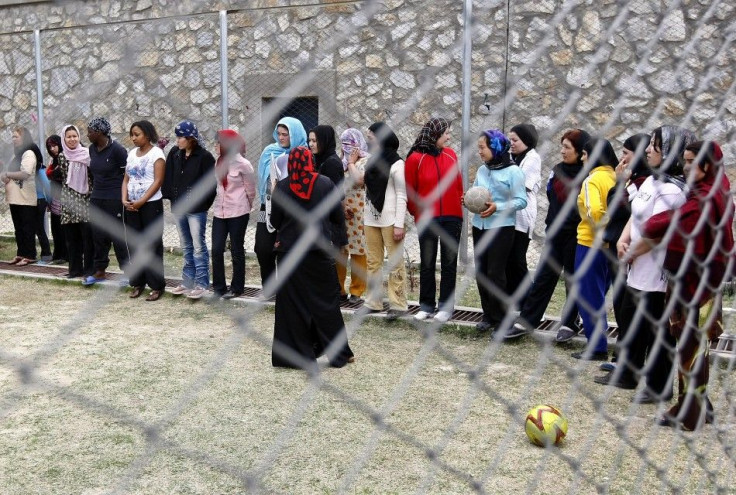Human Rights Watch Releases Report On Afghan Women Jailed For 'Moral Crimes'

Human Rights Watch published a report Wednesday on approximately 400 Afghan women and girls imprisoned for moral crimes, calling upon the U.S. and coalition nations to pressure the Afghan government to end what it deems discriminatory laws against women.
Based on over 50 interviews with women and girls held in various prisons and juvenile detention centers, HRW determined that the majority of moral crimes involve running away from home, usually as a result of domestic violence or forced marriage. Others, the organization said, were prosecuted for having sex outside of marriage after being raped or forced into prostitution.
The treatment of women and girls accused of 'moral crimes' is a black eye on the face of the post-Taliban Afghan government and its international backers, all of whom promised that respect for women's rights would distinguish the new government from the Taliban, the report reads.
It is shocking that 10 years after the overthrow of the Taliban, women and girls are still imprisoned for running away from domestic violence or forced marriage, said Kenneth Roth, executive director of Human Rights Watch, in a statement. No one should be locked up for fleeing a dangerous situation even if it's at home. President Karzai and Afghanistan's allies should act decisively to end this abusive and discriminatory practice.
Running away from one's home, in and of itself, is not a crime under the Afghan legal system, but HRW said the Afghan Supreme Court has instructed to treat runaway women and girls as criminals regardless of the law.
Conversely, a 2009 Afghan law specifically makes violence against women a criminal offense, though HRW said it is often overlooked by the very same representatives of the legal system that criminalize running away from such abuse.
Courts send women to prison for dubious 'crimes' while the real criminals -- their abusers -- walk free, Roth said. Even the most horrific abuses suffered by women seem to elicit nothing more than a shrug from prosecutors, despite laws criminalizing violence against women.
HRW also said that current divorce laws in Afghanistan only exacerbate the abusive domestic situations for women, where men are easily able to divorce their wives, but not vice versa.
It is long past time for Afghanistan to act on its promises to overhaul laws that make Afghan women second-class citizens, Roth said. Laws that force women to endure abuse by denying them the right to divorce are not only outdated but cruel.
The Afghan government and its international partners should act urgently to protect women's rights and to ensure there is no backsliding, Roth added. President Karzai, the United States, and others should finally make good on the bold promises they made to Afghan women a decade ago by ending imprisonment for 'moral crimes,' and actually implementing their stated commitment to support women's rights.
© Copyright IBTimes 2024. All rights reserved.











